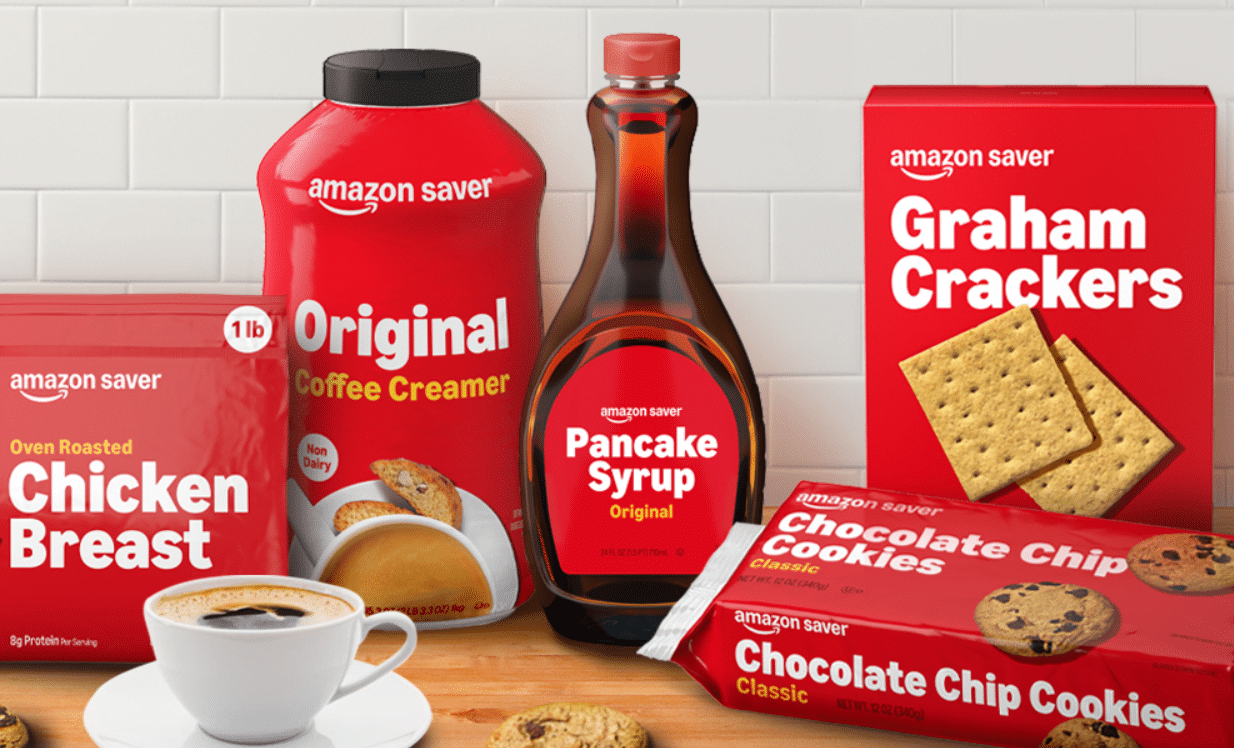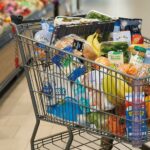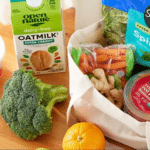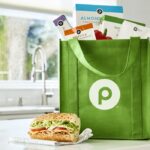
A new report finds that online grocery prices fell sharply last month, by the largest rate in at least a decade. Now, the world’s largest online retailer wants to make your next grocery order even more affordable.
Amazon has introduced Amazon Saver, its new “no-frills” private label grocery brand it says “will help grocery budgets go further.” The brand debuts with just a handful of items, but Amazon says there will eventually be more than 100 additional products, most priced under $5.
And most, so far, are priced significantly less than the name brand equivalents that Amazon carries. A 15-ounce container of Amazon Saver powdered coffee creamer is priced at $3.49, compared to the next least-expensive option, Coffee-Mate, priced at $3.99. A 42-ounce container of oats is $3.99, while Mom’s Best brand is $5.22. And a 15-ounce can of Amazon Saver pizza sauce is just $1.09, half the price of the Contadina brand that Amazon sells for $2.19.
Amazon Saver prices also beat grocery competitors like Kroger – its store-brand coffee creamer, oats and pizza sauce all cost at least 10% more than Amazon’s. As for Walmart, it’s not to be outdone, as it clearly monitors competitors’ prices in order to beat them – most of its equivalent products cost precisely a penny less than Amazon’s.
Amazon is offering additional perks, though. Prime members get 10% off all Amazon brands. Amazon says it will offer 25% off a rotating selection of brand name items. And each week, roughly a dozen different grocery items will be on sale for up to 50% off.
“We’re always looking to make grocery shopping easier, faster, and more affordable for our customers,” Claire Peters, worldwide vice president of Amazon Fresh said in a statement. “It’s now easier than ever to get your weekly grocery shopping done on a budget with Amazon Fresh.”
Amazon’s commitment to less-expensive private label products and frequent promotional prices comes as the cost of buying groceries online is coming down. Adobe’s newest monthly Digital Price Index has found that online grocery prices fell 3.7% last month, marking the largest monthly decline since Adobe began tracking online prices back in 2014.
And shoppers who switched to store brands to save money have said they’re likely to stick with them. A recent report by FMI – The Food Industry Association found that 90% of shoppers are very or somewhat likely to continue purchasing store brands, even if inflation slows or the prices of groceries decrease.
So it makes sense that Amazon would like its brands to become its customers’ favorites. But it has a long way to go. A recent Numerator report found that Walmart is the leading private label seller, with five of its brands found in more than half of all American homes. 30% of all items Walmart sells are private label products, while that percentage at Amazon is only 3%.
Low prices, a new brand and plenty of promotions could help change that. Amazon certainly hopes so.
Image source: Amazon










